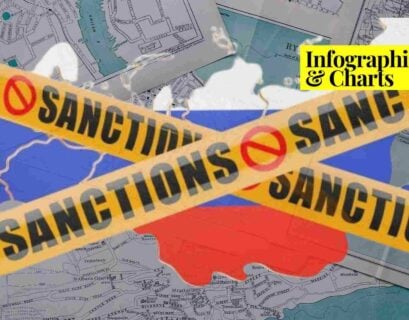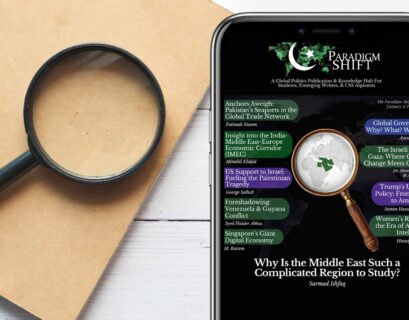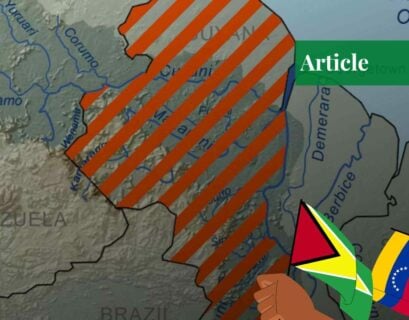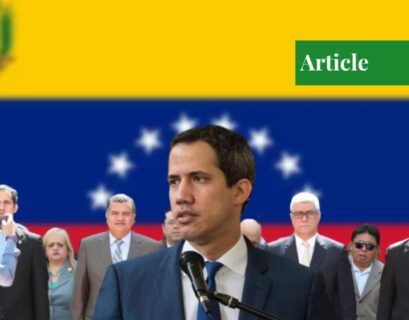Ms Seemal Nadeem is studying public policy at NUST.
Issues After Independence
The border between Venezuela and Colombia is approximately 2000 km, the longest border for both countries. Both have struggled with civil wars and internal strife as well as strained relations since independence. The authority of the central governments was contested throughout the 19th century and they were confined only to the economic and political centers of the countries.
Amidst these struggles, the border areas were largely ignored on both sides because they did not provide any tangible economic benefits. The borders became ‘ungoverned’ due to the lack of state penetration, border controls, and the lack of monopoly of the state to use force. Due to these reasons, the border regions became a breeding ground for conflict and an attraction for external forces, like revolutionaries and liberators.
Many of these organizations were looking to control the lucrative drug trade in the region and use the porous border for smuggling arms and other illicit transactions. The conditions at the border worsened and transformed into one of the major humanitarian crises that we see today. Clashes between armed forces from both sides of the border have affected thousands of civilians.
Border Disputes
Guerilla fighters from both sides have committed human rights violations and extreme abuses at a mass scale that range from kidnappings to killings of men, women, and children alike. In 2021 alone, 3000 people were forcibly displaced and hundreds were killed. In 2015, the Venezuelan government accused the Colombian militia of attacking Venezuelan soldiers and closed a border crossing between the two countries.
This left tens of thousands of Colombians deported from Venezuela which created a huge migration crisis in the region; there were also threats to seal the full length of the border. These threats were later realized in 2018 for political reasons.
Due to the border disputes that lingered on for decades, diplomatic relations between Colombia and Venezuela were already hanging by a thread. The final blow came in 2018 after Venezuela threatened to attack Colombia when the US made threats to take military actions against Venezuela. Colombia and the US are trading partners and they have established good diplomatic ties with each other, in contrast to Venezuela which never had diplomatic ties with the US.
Strained Relations between Colombia & Venezuela
There were bombings in Venezuela in 2018 and they were blamed on Colombia. Following the allegations, Colombian President Ivan Duque, assuming the presidency in 2018, announced that they would not have a Venezuelan ambassador and refused to recognize Nicolas Maduro as head of the state following the Venezuelan elections in 2018. Duque instead recognized Maduro’s opposition leader Juan Gaido as the legitimate head of state.
In early 2019, under Maduro’s rule, Venezuela underwent political turmoil and socio-economic instability that transformed into a humanitarian crisis where the country faced an extreme lack of food, medicines, and other essential services; thousands of citizens were forced to migrate. In response to the shortage of basic necessities, the US sent aid trucks loaded with food and medicines, but the pro-Maduro bloc burnt them.
Restoring Diplomatic Ties
Consequently, in 2019, the Maduro administration ended diplomatic ties with Colombia and closed the entire border. However, after a 3-year break, Venezuela and Colombia decided to restore diplomatic relations in 2022 after Gustavo Petro assumed the presidency in Colombia and recognized the Maduro administration. The two administrations have decided to open the border fully and work out the border disputes.
Colombia’s commerce minister has also predicted that reviving trading relations could hit $1.2 billion; however, this growth of trade depends on how the Venezuelan economy recovers after its freefall from 2015 to 2020. The minister also says that if both countries work together to crack down on smuggling across the border, trade prospects could be bettered further. Colombia also intends to take help from its neighbor to meet its gas needs.
The Venezuelan government expects trade to hit $4 billion within a year of opening the border. Further developments are being made to strengthen ties since their re-establishment; the two presidents have agreed to resume commercial flights and the shared border officially opened for the transport of cargo on 26th September 2022.
The presidents have been openly posting about the hope and cooperation that is due to come; “We confirm the government’s commitment to restore brotherly relations,” Petro said on Twitter on Friday. They have also accepted each other’s ambassadors and a state visit is expected to be announced. The relationship between the two neighbors is clearly taking a hopeful turn as the economies and people on both sides are expected to benefit from mutual gains.
Matters to Consider
However, these gains will be limited if both states continue the ‘blame game’ over the issue of smuggling across the border. Although trade has been resumed, the governments still need to work together to form strong cohesive policies to tackle smuggling and the lawlessness that has taken over the border areas.
Another thing to consider is that recognizing the Maduro government is dangerous. It legitimizes the rule of Maduro who has been in power as the president of Venezuela since 2013. His regime has faced a lot of international criticism with reports that Maduro has been an authoritarian ruler and has not respected the presidential republic that Venezuela is supposed to be.
Venezuelan economy also plummeted under the Maduro rule with reports of human rights violations, including extrajudicial killings, forced abductions, excessive use of force, and torture. These reports still stand in the present and Colombia’s decision to accept Maduro’s government only gives him more power to uphold the status quo that does not benefit the people of Venezuela. Hence, in this newly formed relationship, not everything is hunky-dory as the leaders have painted it so far.
If you want to submit your articles/research papers/book reviews, please check the Submissions page.
The views and opinions expressed in this article/paper are the author’s own and do not necessarily reflect the editorial position of Paradigm Shift.



















